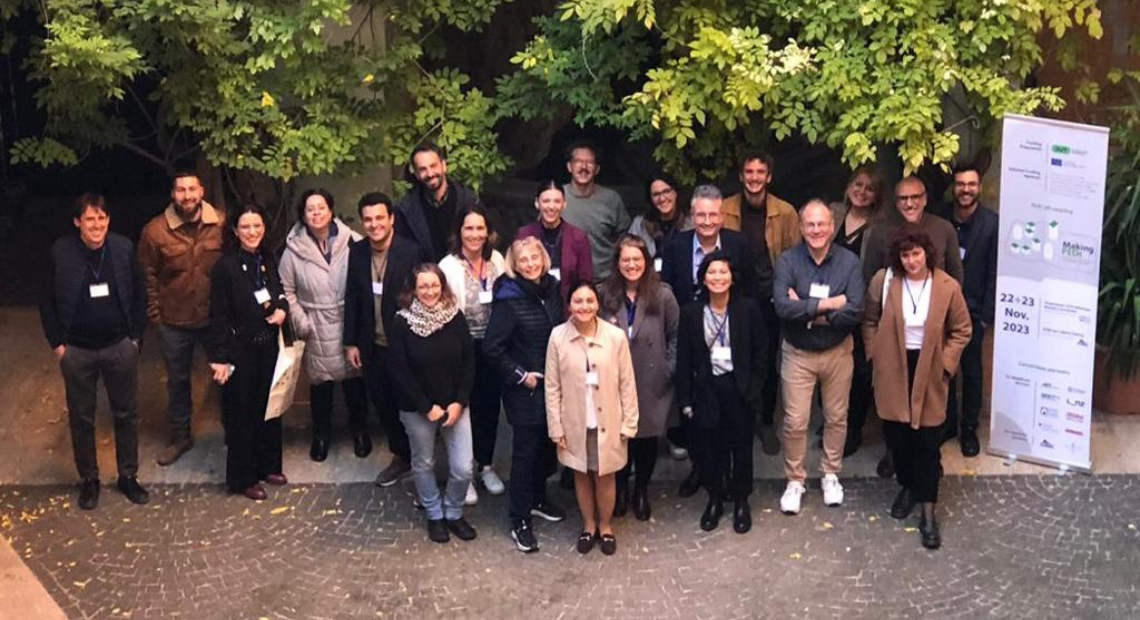The use of simulation tools in the urban context and connected to 2D or 3D web-based visualization applications are valuable tools for decision-makers and citizen’s engagement. If we talk about improving the sustainability of the building stock in neighbourhoods and districts, innovative technical, social and economic models need to be considered under a global LCA/Climate change perspective having in mind interactions with mobility, circularity and co-creation processes with public authorities and citizens.
Making PEDs is a DUT European Partnership that stands for “Decision-Making digital twins for climate neutral PEDs“, led by IREC. The kick-off meeting is held in Rome from 22-23rd of November, 2023. PEDs stand for “Positive Energy Districts”
The aim of the Making PEDs project is not only to research and plan Climate Neutral PEDs but also to facilitate the transition into practice providing Digital Twins to support decision-making and participatory urban transformation processes.
The project has a total budget of ~2M€ and will run for 30 months.
The consortium is equilibrated with 4 research centres/universities (Univ. Roma 3, NTNU, AIT and IREC), 3 public bodies (City of Linz, City of Bærum and ATER-Civitavechia) and 3 SMEs (CICLICA, R2M and Urban Future). All of them have each solid experience and high ambition to use fully the ability of their existing urban platforms and ICT systems to foster collaboration for better services, innovative business models and implementation of new ways to reach and engage citizens in co-creation and co-production of sustainable energy transition solutions.
The project is led by Dr. Jaume Salom from the Thermal Energy and Building Performance group at IREC, who is coordinating the project. Dra. Joana Ortiz is acting as deputy coordinator and responsible of the development and integration of the PEDs calculation methodologies under a holistic life-cycle assessment perspective.
Tools and results of the project will be tested in 4 urban areas Austria, Italy, Spain and Norway acting as Urban Living Labs. Despite the common challenges, they face city and district specific challenges due to divergent geography, geology, demography, climate, and socio-economic and cultural characteristics. These characteristics make them embark on their urban energy transition from different perspectives and a different level of maturity regarding the implementation of the ULLs pilot initiatives.
Acknowledgements (in English and Spanish)
DUT Call 2022 is funded by the European Commission under the Horizon Europe Partnership scheme. The call is also part of the MICall 2022 to contribute the Urban Transition Mission of Mission Innovation.
El proyecto Making PEDs (DUT European Partnership) está financiado por el Ministerio de Ciencia e Innovación, la Agencia y, en su caso, la Unión Europea (Proyecto F-DUT-2022-0186 financiado por MCIN /AEI/10.13039/501100011033/UE).




